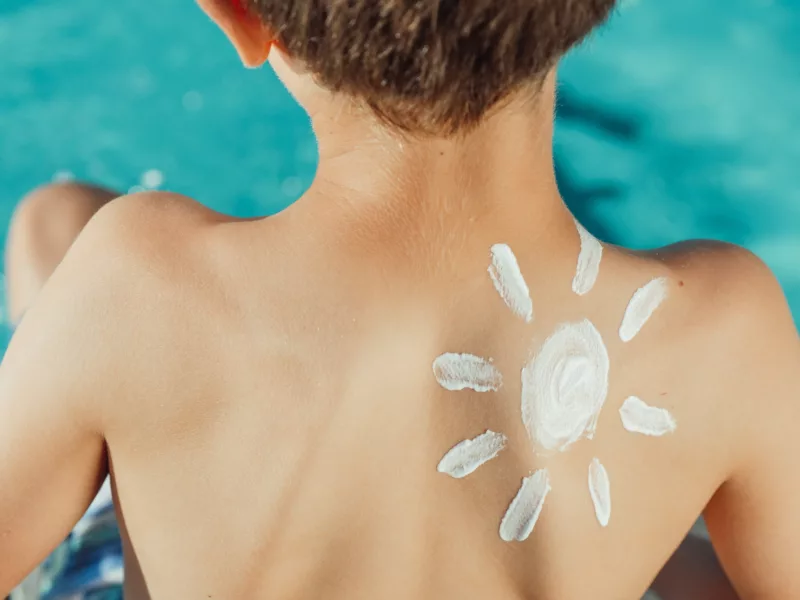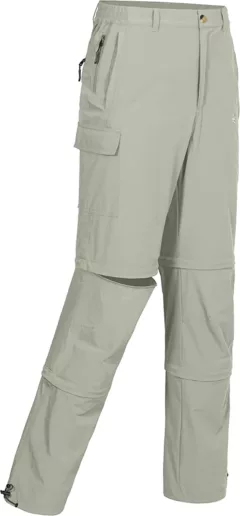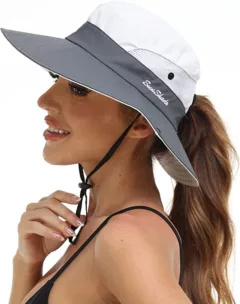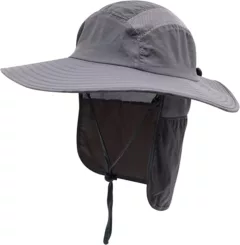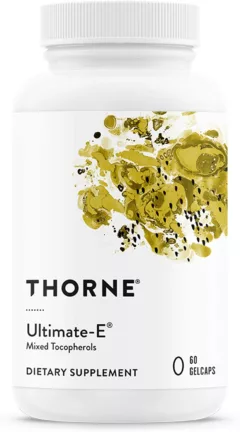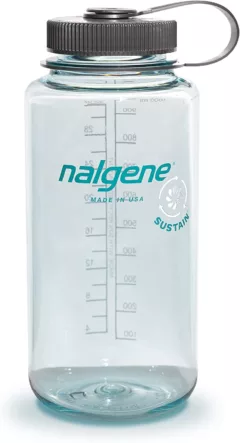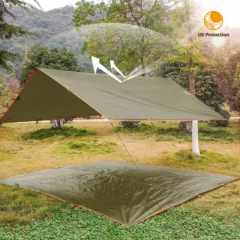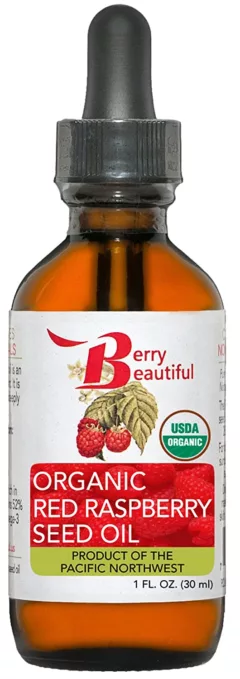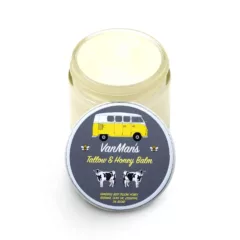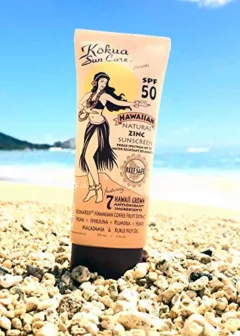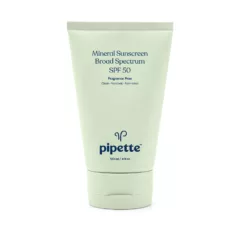The sun is a crucial source of life and provides us with Vitamin D, a vital nutrient for our health. Despite this, many in society have developed a fear of sun exposure due to misconceptions about its association with skin cancer. In reality, it is not the sun itself that causes skin cancer, but rather our bodies’ inability to adapt to its exposure. The sedentary lifestyles and unhealthy diets that are prevalent in modern society have increased our susceptibility to sunburn and skin cancer. As a result, we have been led to believe that using chemical-based sunscreens is necessary for skin protection, when in fact, they often do more harm than good. Chemical sunscreens contain harmful ingredients such as benzene, avobenzone, and homosalate that can penetrate the skin, cause inflammation, and disrupt the endocrine system. Furthermore, they prevent the production of Vitamin D by blocking UVB rays, depriving us of the numerous health benefits that come with sun exposure and Vitamin D, including improved energy levels, mood, immunity, bone health, and much more.
Fortunately, there are various alternatives for sun protection that do not involve using conventional chemical-based sunscreen. Here are seven options to consider:
Wear Protective Clothing
One of the most effective ways to protect yourself from the sun is to cover up with protective clothing. This includes wearing long-sleeved shirts and wide-brimmed hats. Clothing that is specifically designed for sun protection, such as UV-resistant clothing, is even better. These types of clothing have a tighter weave and are made from materials that block out UV rays. Wearing UV-resistant clothing is a great option for a day in the sun, particularly during activities like hiking, backpacking, and sports.
Eat Your Sunscreen
Diet and nutrition have a significant impact on the way your skin handles sun exposure. To support healthy skin metabolism, it’s best to consume foods rich in antioxidants, vitamin C and E, such as berries, leafy greens, beets, citrus fruits, and avocados. These foods create a natural sunscreen that protects your skin from the sun.
Fats play a critical role in maintaining skin health. Omega-3 fatty acids defend against free radicals and are primarily found in fatty fish and seafood. Saturated fats are also essential for cell development. Despite the common misconception that saturated fats are harmful, research has shown that fatty meats, raw dairy, and eggs enhance skin health by reducing inflammation and providing skin-enriching vitamins and minerals.
On the other hand, omega-6 fatty acids and polyunsaturated fatty acids (PUFAs) should be avoided from consumption. These are found in processed seed oils such as canola, sunflower, corn, soybean, and safflower oils. The consumption of seed oils is the leading cause of disease and depletes vitamin E in the body, which increases the risk of sunburn and cancer. To replenish vitamin E and reverse the effects of PUFAs, consider taking a high quality vitamin E supplement. Additionally, eliminating processed foods and refined sugar, and increasing the intake of real, whole and nutrient-dense foods into your diet can also improve skin health and overall wellbeing.
Stay Hydrated
Drinking plenty of water is not only important for our overall health, but it can also help protect our skin from the sun. When our bodies are dehydrated, our skin becomes more susceptible to sunburns and skin damage. Make sure to drink plenty of water throughout the day, especially when spending time outdoors. Add a pinch of salt and a squeeze of lemon for electrolytes and proper hydration. Eating fruits is also a healthy way to replenish fluids.
Seek Shade
Another way to protect yourself from the sun is to seek shade. This is especially important during the peak hours of the day when the sun is at its strongest, which is typically between 10 am and 4 pm. If you’re camping or hiking, bring a portable shelter or a tarp to create shade for yourself. Consider starting a hike before dawn to avoid peak hours.
Build Sun Tolerance
Build up your skin’s tolerance to the sun by gradually increasing daily exposure without any sunscreen. Start with a few minutes in the morning and gradually increase the duration daily. Listen to your body and how your skin is responding to the amount of exposure. The more melanin your skin develops, the more protection you will have from the sun. Keep this method in mind if you’re planning a lengthy hike or expect to be exposed to the sun for an extended period.
Try Natural Sunscreen Alternatives
There are several natural alternatives to sunscreen that can help protect your skin from the sun. These include coconut oil, olive oil, red raspberry seed oil, aloe vera, and tallow. While these oils do not provide the same level of protection as traditional sunscreens, they do contain properties that can help reduce the harmful effects of the sun. Conduct a patch test to determine the most suitable oil for your skin type by applying a small amount of each oil on separate patches on your arm and marking which oil is where. Allow the patches to be exposed to the sun and observe the results.
Use Mineral-based sunscreen
If you anticipate extended sun exposure or have sensitive skin, consider using a mineral-based sunscreen. These sunscreens use minerals such as zinc oxide and titanium dioxide to form a physical barrier on the skin that deflects and scatters UV rays, as opposed to chemical sunscreens which penetrate the skin. Mineral sunscreens are also generally considered more environmentally friendly, especially if you plan on swimming in bodies of water. The only downside to mineral sunscreens is that they can leave a white cast on the skin, but that’s a small price to pay for protection while you embrace your wild side in nature!
Final Thoughts
Protecting yourself from the sun doesn’t have to involve using toxic sunscreens. By incorporating these alternative methods, and most importantly, improving your sun tolerance, you can help reduce your risk of sunburns and skin damage. By making these simple changes, you can reap the benefits of the life-giving sun safely and comfortably while having a great time outdoors.
Disclosure: We take pride in handpicking products that we believe in and recommend to our readers. Our editors make the selections independently, and some products may have been sent to us as samples. However, please note that we only share our genuine opinions and reviews. Additionally, please be aware that if you choose to purchase through the links on our website, we may receive a commission from the sale. Prices shown on our website are accurate, never marked up, and the products are in stock at the time of publication.
Disclaimer: The information presented in this blog post is for informational and educational purposes only and is not intended to replace professional medical advice. Roam Offgrid has made every effort to ensure the accuracy of the information presented, but cannot guarantee its completeness or reliability. Before making any changes to your sun exposure habits or using alternative forms of sun protection, it is important to consult a qualified healthcare professional for personalized advice. Roam Offgrid does not take any responsibility for any adverse consequences that may result from following the information presented in this post. Participating in outdoor activities can expose you to the sun and its UV rays, and it is important to understand the risks and take appropriate precautions to protect your skin.
-Roam Offgrid
